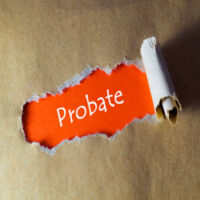Frequently Asked Questions About Probate In Florida

Probate is a court-supervised process that involves administering the property of a deceased person. Many people have heard of the probate process, but they are unsure of everything it entails, how long it will take, and the costs associated with it. Below, our St. Petersburg probate and trust administration lawyer answers some of the most common questions we hear.
When Does an Estate Have to Go Through Probate in Florida?
Any time a person dies with property titled in their individual name, such as a bank account or home, probate is required. The purpose of probate is to transfer property out of the name of the deceased and into the name of the beneficiary. Probate is also necessary when a personal representative must be appointed to manage the affairs of the deceased individual.
Can You Avoid Probate if There is a Will?
No. Even when a will is in place, the property of the deceased is still subject to probate. One of the first steps of probate is often ‘proving’ the will, which essentially validates it. A probate judge will then distribute the property of the deceased according to the will.
How Much Does Probate Cost?
Much of the cost of probate is a result of the lawyer’s fees. Lawyers typically charge a flat fee for smaller estates, typically between $1,500 and $3,000. For larger estates, lawyers will charge a percentage of the overall estate. Probate court costs typically range between $350 and $700.
Can You Avoid Probate?
If a loved one has passed away and does not have certain estate planning tools in place, such as a trust, there often is little you can do to avoid probate. If you are currently planning your estate, though, there are many tools you can use to avoid the process. Payable-on-death accounts, such as a savings account or IRA, do not go through probate and can be distributed almost immediately to the beneficiary. This also occurs when a life insurance policy has beneficiary designations. For other types of property that do not have a beneficiary designation, you can create a trust to help your loved ones avoid probate after you are gone.
What is Ancillary Probate?
Ancillary probate occurs when a person dies with assets in more than one state, or dies in one state but owns real property in another state. For example, if that decedent owned a vacation home in Florida, an ancillary probate would have to be opened in Florida to properly handle the real property. The ancillary probate in Florida is meant to complement the probate case in the individual’s home state.
Our Probate and Trust Administration Lawyer in St. Petersburg Can Answer Your Questions
At Legacy Protection Lawyers, LLP, our St. Petersburg probate and trust administration lawyer is here to answer any questions you have about probate proceeding, or planning your estate. Call us today at 727-471-5868 or contact us online to request a consultation with our experienced attorney and to get the legal answers you need.
Source:
leg.state.fl.us/statutes/index.cfm?App_mode=Display_Statute&URL=0700-0799/0733/0733ContentsIndex.html
